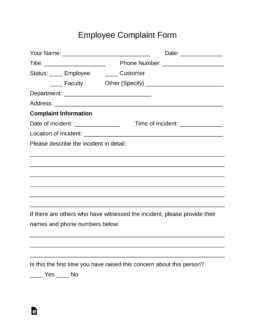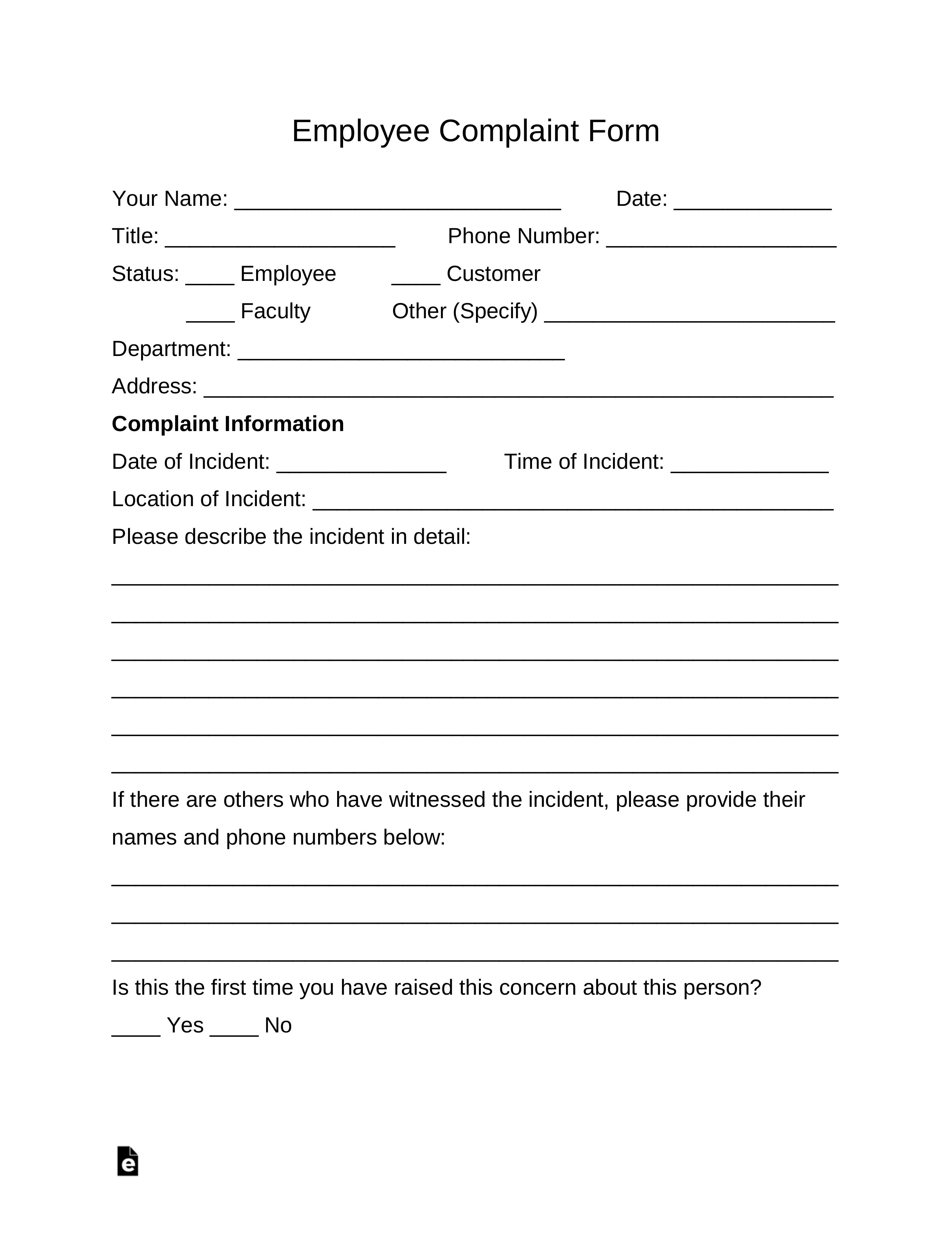Updated August 21, 2023
An employee complaint form allows an employee to document and submit a grievance concerning inappropriate or illegal misconduct witnessed in the workplace. The structure of such complaint forms make for a formalized and clear framework of facts, and employers and human resource personnel utilizing these forms are presented with a systematic process for interpreting the issue at hand. Moreover, this form provides a method for adequate collection and documentation of workplace violations.
When Should You File an Employee Complaint Form?
Employees may be faced with a number of reasons to file a formal complaint, whether it be against a colleague or an individual in a supervisory position. The following are common reasons to file an employee complaint:
- Discriminatory harassment (verbal, religious, racial, disability, sexual orientation, age, etc.)
- Personal harassment (inappropriate comments, offensive jokes, ostracizing behaviors, humiliation, intimidation tactics, etc.)
- Physical harassment (hostile behavior, destroying property to cause intimidation, direct threats of intending to inflict bodily harm, physical attack, etc.)
- Power harassment (intruding into an employee’s personal life, excessive demands that are unlikely to be met, demeaning demands, etc.)
- Psychological harassment (spreading rumors about an individual, challenging everything the victim states, belittling or trivializing the victim’s thoughts, etc.)
- Cyberbullying
- Retaliation
- Sexual harassment
- Theft
- Quid pro quo sexual harassment
- Third-party harassment (harassment from an individual outside of the organization, such as a client)
How to File an Employee Complaint Form (4 steps)
- Bring the Incident to the Attention of a Manager
- Download and Enter Personal Information
- Give Specific Details
- Submit the Complaint Form
1. Bring the Incident to the Attention of a Manager
What Should I Do If My Employer Violates the Law?
If an employee believes an employer is violating the law, they can contact different entities dependent on the violation at hand. Employees may report the incident to an internal compliance or ethics department as provided by the employer or may take a more formal approach as provided below:
- Safety issues – Report the incident to the Occupational Safety and Health Administration (OSHA)
- Hours or wage concerns – Local state labor department or Federal Department of Labor
- Harassment and discrimination – Equal Employment Opportunity Commission
How Should an Employer Handle Discrimination in the Workplace?
Should an event regarding discrimination be reported, the employer should take specific steps to handle the report:
- Have an open perspective: Employers should not immediately assume the validity of a situation prior to attempting an investigation. Taking action prior to completing a full investigation could have an adverse effect if not appropriately handled, inclusive of fines and penalties as determined by local state law.
- Ensure the employee is heard and not retaliated against once an issue has been reported.
- Follow all pre-established procedures in accordance with company regulations and state law, if applicable.
- Interview all parties involved to gather a full perspective of the situation. In that, the employer should determine if corroboration or contradiction is found, which could impact an investigation or outcome. All details should be documented appropriately.
- The employer should handle the process privately and should retain confidentiality.
- Once the investigation is complete, the employer should take appropriate action towards the wrongdoer in accordance with their company policy, government agencies, or local state laws as needed.


